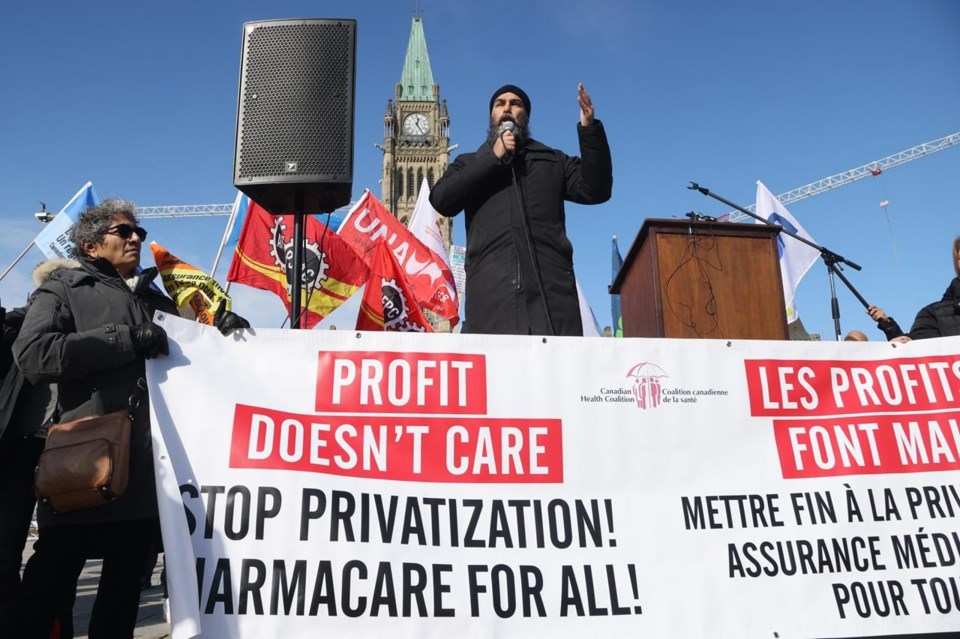OTTAWA — Pharmacare negotiations between the Liberals and NDP are on a knife's edge, and the main point of contention is the number of drugs they plan to start with.
If the parties reach a deal, they plan to begin by launching with a select few drug categories while they continue to formulate a more robust national drug plan, two sources with knowledge of the talks said.
The parties have already agreed to cover birth control through a single-payer program in the first go around, and they are also in talks to include diabetes drugs in the program.
The NDP is pushing for more drug categories to be included, but the Liberals have raised concerns about costs, said the sources, who were granted anonymity because they aren't authorized to speak publicly about the closed negotiations.
There is also more work to do to determine which drugs in each category would make the cut for the initial program.
"Every diabetic in this country, we want to make sure that they can get the insulin they need," said NDP health critic Don Davies Wednesday.
"Every young woman who needs contraception, we want to make sure she can get the contraception she needs. These are the kinds of things that we're working toward."
The effects on this spring's budget will depend on how many drugs are ultimately included in the deal, but the parties hope to make the medicines available before the next election.
The minority government must table pharmacare legislation by March 1 if it hopes to keep its political pact with the NDP and secure the opposition party's support on key votes.
The deal serves as a way for the Liberals to safeguard against a snap election before fall 2025, when the next federal contest must take place.
As of Tuesday, NDP Leader Jagmeet Singh said he didn't have a sense of whether they would be able to come to an agreement in time.
The NDP will keep working toward a deal "right up to the bell," Davies said Wednesday.
The NDP has insisted that the proposed bill make reference to a single-payer, universal system, which was recommended by an advisory council the Liberals appointed in 2018 to study the potential implementation of pharmacare.
The parties have been trying to devise language in the bill that would create progress without ultimately locking the government into a program expected to cost roughly $40 billion a year once it is fully implemented.
Health Minister Mark Holland has repeatedly declined to discuss the negotiations, but the Liberals have said they will table a bill by March 1.
All Holland would say when asked about the negotiations with the NDP on Tuesday was: "I think we're moving toward common ground."
The legislation was always intended to provide a framework for a future pharmacare program.
"It's not going to have all the answers, and we're not going to be in a position where we can take on massive costs," Holland said at a press conference in Yellowknife.
The Liberals' deal with the NDP initially called for pharmacare legislation to be passed by the end of last year, but the two parties couldn't see eye to eye on the text of the bill.
Instead, they agreed to push the deadline back by three months and only require that legislation be tabled by then.
Singh said he would be asking for more out of the deal because of the missed deadline. He wouldn't specify what he meant by "more," but said Tuesday it would be "pharmacare-adjacent."
British Columbia already covers many contraceptives as part of its provincial pharmacare program, and Manitoba's government has already pledged to do so as well.
Ontario also provides many contraceptives for people under the age of 25 who don't have private insurance.
This report by The Canadian Press was first published Feb. 14, 2024.
Laura Osman, The Canadian Press



